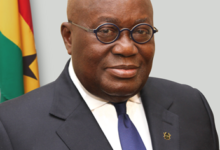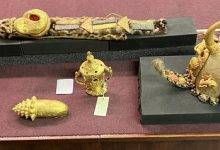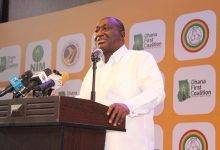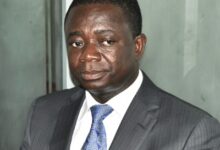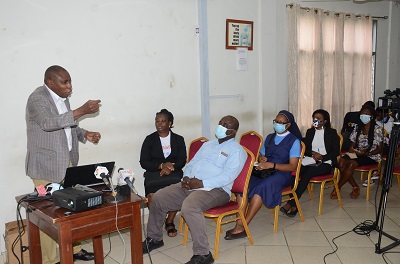
The Ghana Health Service (GHS) says multiple doses of the oral polio vaccine (OPV) administered against the polio virus type 2 does not pose any harm to children.
According to the Service, the vaccine rather increases protection of children against the infection, hence the need for parents and caregivers to present their children for immunization as the GHS today begins round two of mass polio vaccination for children under five years.
The exercise, expected to end on Sunday, October 11, 2020, will concurrently take place in eight regions of the country, namely the Ashanti, Eastern, Volta, Central, Western, Western North, Upper West and Greater Accra.
As part of the exercise, children from six months to five years would also receive Vitamin A capsules to boost their immunity and for healthy growth.
Deputy Director, Public Health, of the Greater Accra Regional Health Directorate, Dr Luiz Amoussou, at a press briefing in Accra yesterday, gave the assurance that, “the polio vaccine is effective, safe and free. It has no side effects and taking multiple doses actually increases immunity of children against the virus.”
“Doses given during the campaign do not replace those given in routine immunization and vice versa. Therefore, parents must ensure that even if their children have taken the OPV during routine hospital visits, they must allow the nurses to vaccinate their children when they come to their homes because it poses no harm to the child,” he said.
With specific reference to the Greater Accra Region, Dr Amoussou said the immunization exercise would take place in all its 29 districts, targeting about one million children.
He said 910,000 children were expected to be administered with Vitamin A tablets as the regional directorate deployed over 2,000 health workers to conduct the exercise.
The Deputy Director said more than half of the districts in the region achieved the expected coverage of immunization against the polio virus as over one million children were covered in the previous round.
He, however, expressed concern that a lot more children could not be immunised in the region and so were at risk of the infection as parents refused to allow their children to partake in the exercise with “excuses that they were absent [from home] or asleep”.
Dr Amoussou held that if a population was fully immunised, it would be protected against all forms of polioviruses, adding, “It is critical that we vaccinate every child and strengthen routine immunisation and we cannot stop until every child can live a life free of polio.”
Regional Health Promotion Manager, Mrs Eunice Teah Dzagli, cautioned that the type of vaccine being used in response to the outbreak was not available at the private health facilities or child welfare clinics, hence once a child missed it, “it means that your child will not be covered and protected against polio.”
She said health workers and vaccinators had been instructed to take into cognisance all safety protocols against the coronavirus disease (COVID-19) as they embarked on the exercise.
“Aside equipping them with the needed personal, protective equipment (PPE), we have advised them not to carry children while administering the dose but rather let the parents hold them,” she stated.
Poliomyelitis (polio) is a highly-infectious viral disease that largely affects children under five years of age.
The virus is transmitted from person-to-person through the faecal-oral route. Someone can also contract the disease when he takes in contaminated water or food, which multiplies in the intestines from where it subsequently invades the nervous system, causing paralysis most often in the limbs.
Symptoms of polio may include fever, fatigue, headache, vomiting, stiffness of neck and pains in the limbs.
Treatment is mainly supportive and can be prevented through vaccination, improved sanitation and personal hygiene.
BY ABIGAIL ANNOH AND PHILOMINA OPPONG


